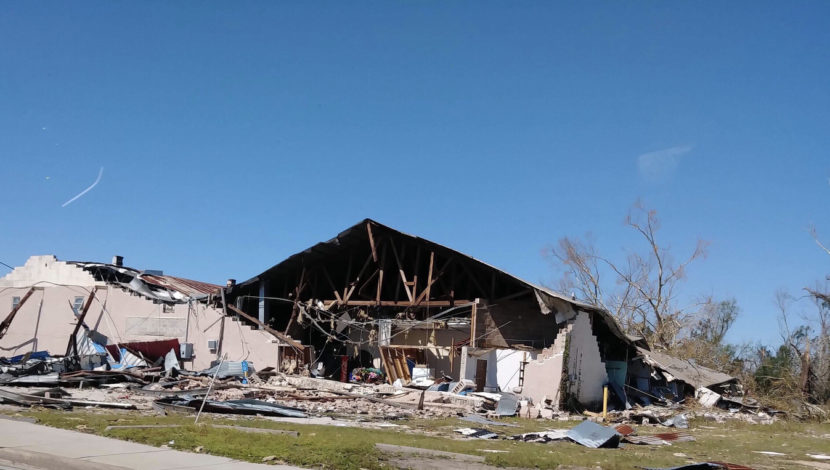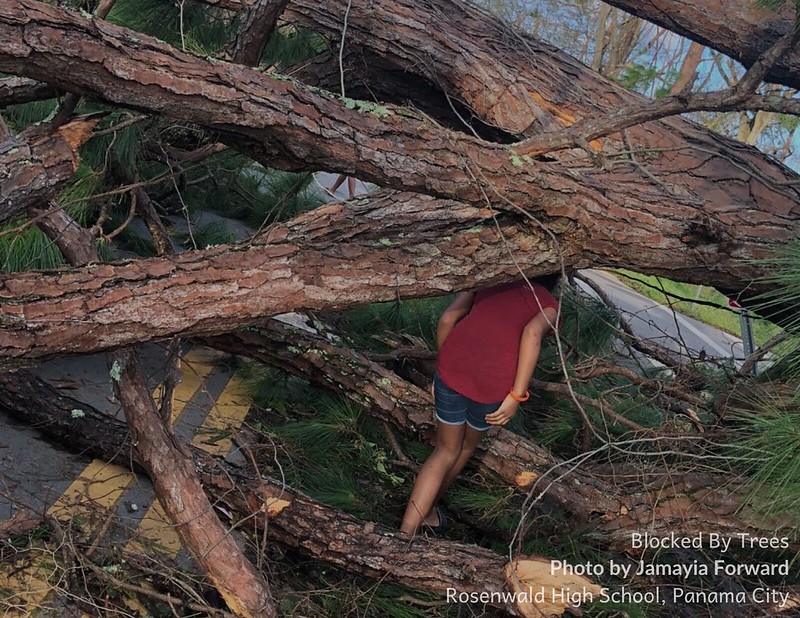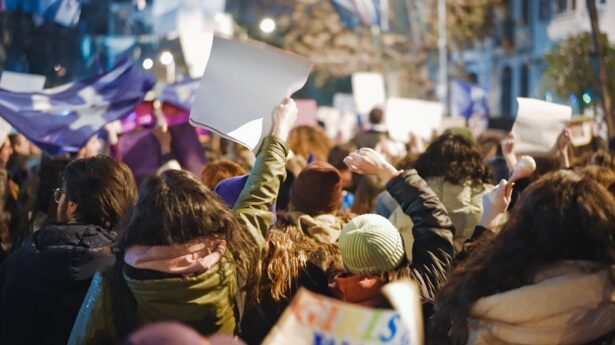The Unitarian Universalist Service Committee advances human rights through grassroots collaborations.
How Do You Shelter in Place When You Have No Shelter?

By UUSC Staff on April 2, 2020
When Hurricane Michael made landfall in October 2018, it not only took the lives of dozens of people, it caused more than $25 billion in damage, destroyed hundreds of homes, and displaced thousands of people. Since then, the displaced have been forced to live without permanent homes, some staying in shelters while others couch surf, sleep on park benches, or are crammed into tight living quarters with friends, neighbors, or extended family members.
UUSC partnered with UU Justice Florida to help a group of more than a dozen youth share their stories and convey the dire circumstances of the thousands living without stable housing. Those youth used photography to show the world what their lives are like without homes. In January, the students took their photos on a traveling tour around Florida to show the public and elected officials the social toll that the hurricane took.

Those stories wove together heartbreaking narratives featuring the deaths of loved ones, the destruction of childhood homes, the separation of families, and the fear, hopelessness, and tragedy inherent in being uprooted and displaced. The students advocated for SB502, a bill that, if passed, would provide millions of dollars to a task force created to address the impacts of Hurricane Michael, including the need for more housing. Sadly, on March 14, that bill died in committee.
And now we are in the midst of a historic and deadly pandemic.
On March 30, Florida Governor Ron DeSantis issued a shelter in place order for Floridians. But how do you shelter in place when you have no shelter? How are you “safe at home” if you have no home?
The Centers for Disease Control and Prevention recommends washing your hands often. What if you don’t have regular access to soap and clean water? The CDC says that you should use hand sanitizer with at least 60 percent alcohol. What if you can’t find or afford it? How can you stay six feet apart from someone if you’re living in a shelter that’s at capacity, or in a three-bedroom home with 14 other people?
UUSC and its members are not only bearing witness to the toll this tragedy has taken, but we are taking action. Though SB502 did not pass, we continue our partnership with UU Justice Florida and the displaced citizens of the Panhandle. As the pandemic adds new layers of injustice and hardship, we will ensure that the youth and families most impacted by storms—both literal and figurative—are not forgotten or ignored.
Header Photo Credit: iStock – Renay Thompson
***
About UUSC: Guided by the belief that all people have inherent worth and dignity, UUSC advances human rights globally by partnering with affected communities who are confronting injustice, mobilizing to challenge oppressive systems, and inspiring and sustaining spiritually grounded activism for justice. We invite you to join us in this journey toward realizing a better future!

